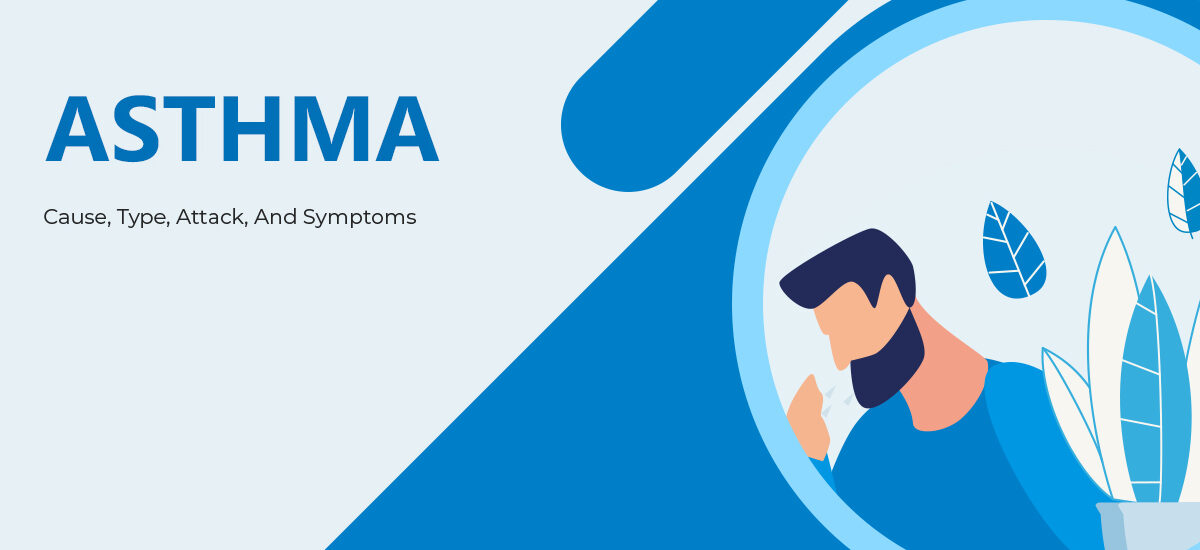Asthma, also known as bronchial asthma, is a chronic respiratory condition that affects the airways of the lungs. It is a common condition, affecting over 25 million people in the United States, including more than 5 million children. Asthma is a lifelong condition that requires ongoing medical management to prevent symptoms and reduce the risk of life-threatening attacks. Symptoms of asthma include coughing, difficulty breathing, and chest tightness, and the condition can range from mild to severe. Asthma is typically managed with medication and avoiding triggers, and it is important to work with a healthcare professional to develop a treatment plan that works for you.
Asthma Attack
An asthma attack is a sudden worsening of asthma symptoms. During an asthma attack, the muscles around the airways of the lungs constrict, causing the airways to narrow and making it difficult for air to pass in and out of the lungs. Inflammation and increased mucus production can also occur, further blocking the airways and making breathing difficult. Symptoms of an asthma attack can include coughing, wheezing, chest tightness, and difficulty breathing. In severe cases, an asthma attack can be life-threatening and requires immediate medical attention. A healthcare professional can help you manage your asthma and prevent attacks.
Types of Asthma
There are several different types of asthma, including allergic asthma, non-allergic asthma, adult-onset asthma, pediatric asthma, and asthma-COPD overlap syndrome. Allergic asthma is triggered by allergens such as pollen, mold, and pet dander. Non-allergic asthma is triggered by factors such as exercise, stress, and illness. Adult-onset asthma develops after the age of 18, while pediatric asthma typically starts before the age of 5 and may resolve as the child grows older. Asthma-COPD overlap syndrome is a condition where a person has both asthma and chronic obstructive pulmonary disease (COPD).
What are Asthma Attacks and what are the symptoms of an Asthma Attack?
An asthma attack is a sudden worsening of asthma symptoms. During an asthma attack, the muscles around the airways of the lungs constrict, causing the airways to narrow and making it difficult for air to pass in and out of the lungs. Inflammation and increased mucus production can also occur, further blocking the airways and making breathing difficult. Symptoms of an asthma attack can include coughing, wheezing, chest tightness, and difficulty breathing. In severe cases, an asthma attack can be life-threatening and requires immediate medical attention.
Who can develop Asthma?
Anyone can develop asthma, but some people are more likely to develop the condition than others. Risk factors for asthma include having a family history of the condition, being exposed to environmental triggers such as pollution or allergens, and being overweight or obese. Children and older adults are also more likely to develop asthma.
Do I need a doctor for Asthma?
Yes, it is important to see a doctor if you think you may have asthma. Asthma is a chronic condition that requires ongoing medical management to prevent symptoms and reduce the risk of life-threatening attacks. A healthcare professional can help you determine if you have asthma and develop a treatment plan for you. This may include taking medication to control your symptoms and avoiding triggers that can cause an asthma attack. It is also important to see a doctor if you have asthma and your symptoms are getting worse or if you are experiencing frequent asthma attacks. Your doctor can help you adjust your treatment plan to better manage your condition.





